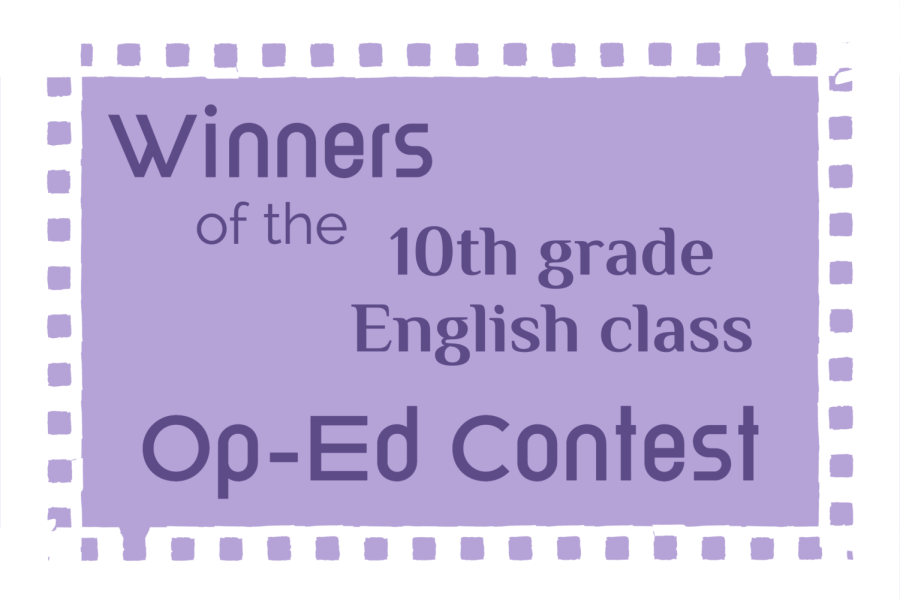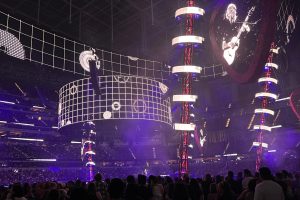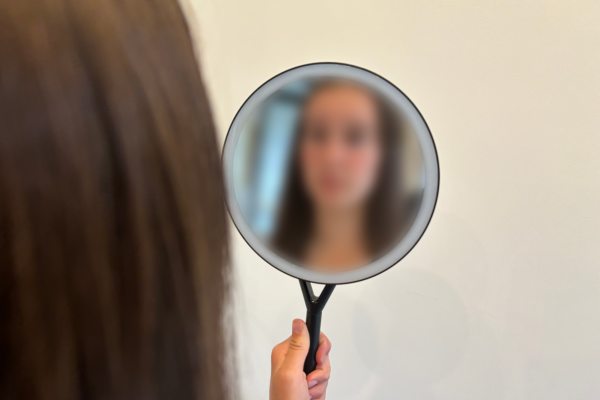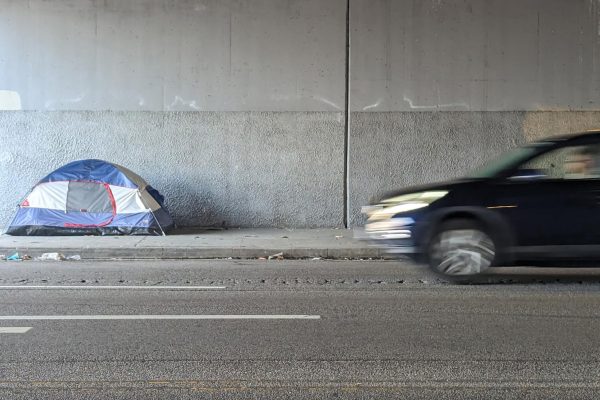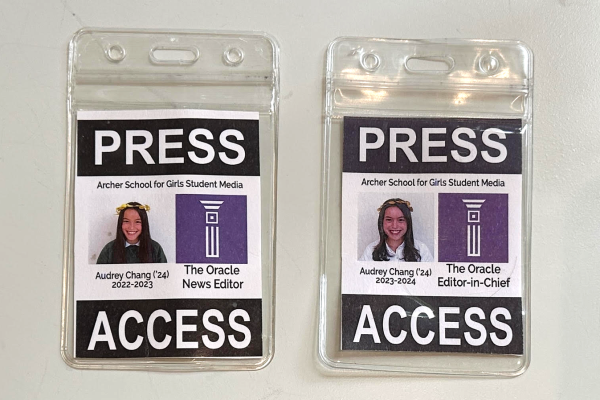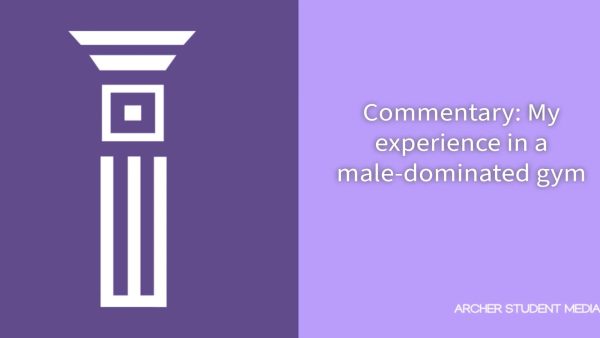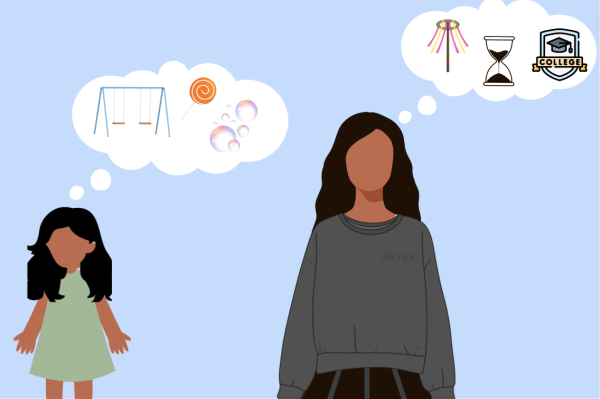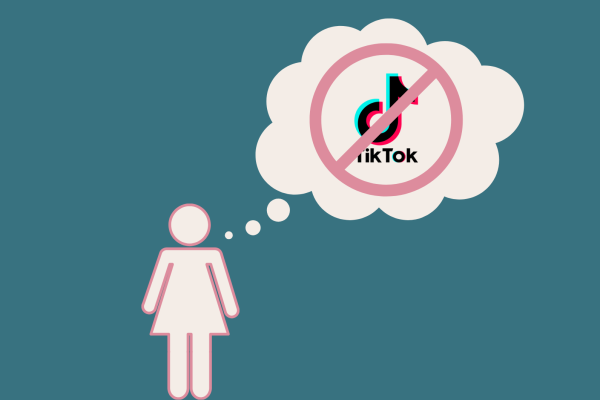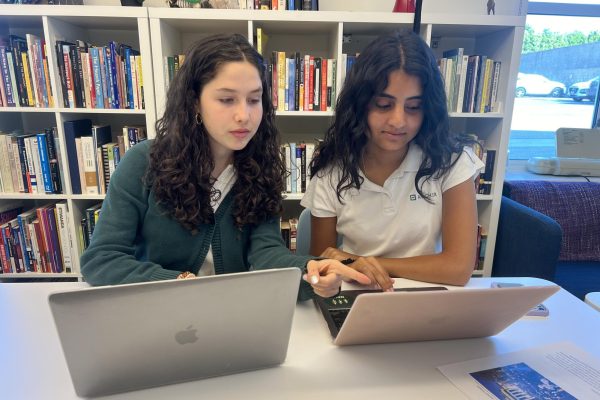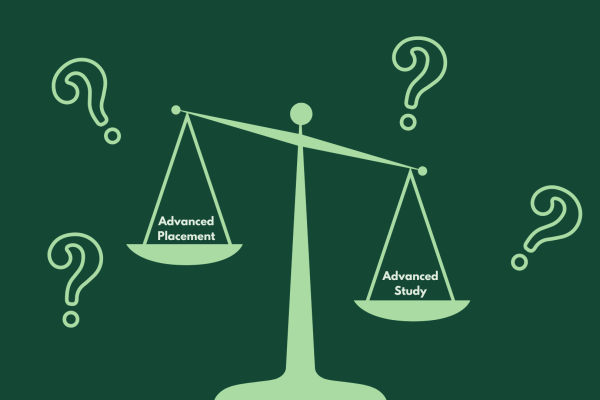Op-Ed: This essay will tell you how insecure you are
Photo credit: Maia Alvarez
Sophomore Natalie Huang wrote an opinion piece for her 10th grade English class about how personality tests can capitalize off of and further insecurities. (Graphic Illustration by Maia Alvarez)
May 27, 2023
Apparently, the Disney relationship I’ve been longing for my entire life is Mulan and Shang’s.
If you couldn’t tell, I was enlightened by a Buzzfeed quiz.
Although fun, those Buzzfeed quizzes we’ve all been taking hide a much darker secret. Tests that tell you what cupcake you are based on your ideal Barbie dream house satisfy the human need to categorize ourselves. That’s just the start of the shadowy personality test industry.
Personality tests are a shallow, capitalist pseudoscience that prey on people’s insecurities and their need to belong. While some are harmless, others on the market promise to tell us what job we’re most suited for or what our traits are — neatly fitting us into little boxes like our brains desperately want — providing an ego-feeding rush of happiness.
For some who are unsure about themselves, a test that can determine who we are for us feels reassuring. Many tests, like Myers-Briggs, claim they can tell us what our fundamental traits are and categorize us into a “personality type” in an easily digestible fashion. Along with a “type,” it relays some vague strengths that we desperately want to see in ourselves. However, one can take it on Tuesday and have a completely different personality on Friday. As John Moore states, “Traits that change are not traits at all.”
Writer Katie Heaney noted every time she took a test about her sexuality, the result was exactly what she wanted. “If [she] took a quiz seeking reassurance [she] was straight, [she] would get it. If [she] took a quiz wanting to be told [she] was gay or bisexual, that would be the conclusion.” These tests simply regurgitate what we’ve told them. It gives us false reassurance about insecurities, and in the short term, allows us to bask in the light of our “personality type.” However, personality researcher at the University of California, Davis Simine Vazire says, “You won’t learn anything that you didn’t already know about yourself.”
Essentially, the companies that market personality tests are really selling us something that will tell us exactly what we want to hear about ourselves. When I felt insecure and bored, here’s a little ego boost that ALSO could tell me more about myself than I think I know? That’s an offer that’s pretty hard to refuse.
However, the reassurance quickly wears off. As I’ve become less interested in my personality type, I’ve also started feeling more secure and confident about who I am and what my passions are. I’m getting more used to and comfortable with the idea of not knowing exactly who I am right now or who I want to become, leading to less of an inclination to categorize myself.
I now know there will never be a test that can tell me who I am. I’d take a test to figure out if I’m more Shang or Mulan, but I’m pretty happy with who I am right now.



